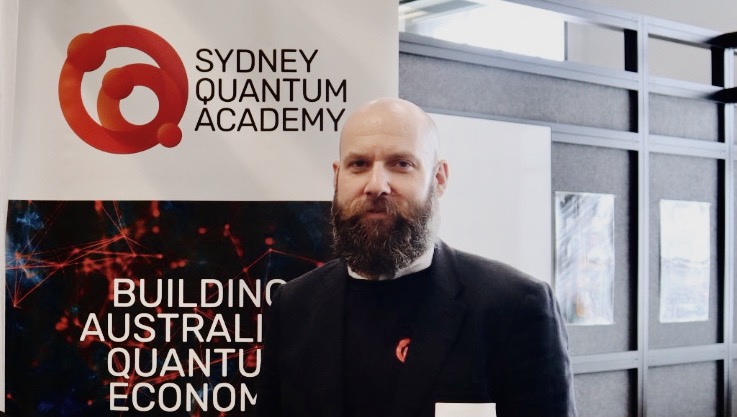Op-Ed: Investing in talent—at all levels—is critical to building Australia’s quantum technology industry
Professor Peter Turner, SQA CEO, explains why November was a big month for Australia’s quantum technology industry, and what needs to happen to realise the technology’s enormous potential.


Op-Ed — 30 Nov 2021
It has been a big month for Australia’s quantum technology industry. A raft of recent announcements from the NSW and federal governments have been welcome acknowledgements of the technology’s enormous potential.
Earlier this month, the federal government announced $111m in funding along with a joint statement of intent between Australia and the US to cooperate in developing the sector. The government’s funding to establish a Quantum Commercialisation Hub and the development of a coordinated national strategy led by Australia’s Chief Scientist Cathy Foley will go some way in helping to cement Australia’s place in this growing global industry.
The NSW Government has also demonstrated its support this week launching the new collaboration space ‘Quantum Terminal’ within Sydney’s Tech Central precinct. It follows an earlier announcement on plans to explore quantum applications for the NSW transport network.
Global investment in quantum technologies from public and private sectors has gained noticeable momentum in recent years. It's estimated that the quantum industry in Australia will be worth $4 billion by 2040. Government players, investors and industry are seeing the value in exploring quantum’s potential to rapidly solve complex problems across areas like cryptography, metrology, simulation and machine learning. Quantum technology could dramatically transform most industries, including healthcare, transportation, mining, cybersecurity and finance.
For decades, Sydney has been a global powerhouse in quantum research. It is home to a concentration of facilities and expertise that rivals anywhere on earth. Sydney Quantum Academy, a partnership between four world-leading universities and the NSW Government, is testament to the talent residing here. We have over 100 experts across Macquarie University, UNSW Sydney, the University of Sydney and UTS helping to deliver breakthroughs in the field.
To grow this community Sydney Quantum Academy has funded over 150 PhD and undergraduate students and fellows to the tune of $11.4M over the past two years. We do so in the belief they will become our next generation of innovators, employed in Australia’s future quantum workforce but also as entrepreneurs and employers themselves.
Quantum is a complex field and often not only the technology but the market opportunity itself are still topics of active research. Scientists and engineers are therefore best placed to lead quantum startups. Australia’s most successful home-grown startups such as Q-CTRL, Quantum Brilliance, QuintessenceLabs and Silicon Quantum Computing, are all innovations spun out from universities. To help produce more success stories, we need to provide incentives for our most talented experts to make the major career decision to commit to commercialisation, and then support them on their journey.
Awareness of quantum technology’s potential outside of the deep tech industry is generally low. Not too long ago it was estimated that only about a thousand people worldwide understood quantum technologies — that number has now grown, but it is still far below what the new industry is demanding. This is an obvious impediment to innovation and early investment. We need academia, government and industry to work collaboratively on potential use cases across all industry sectors where quantum technology could deliver significant advantages. We’re hosting Quantum Australia, a national conference and careers fair, in February next year to help accelerate this vital interaction. The new Quantum Terminal space in the heart of Sydney will also allow us to bring these groups and like-minded people together to help spark innovation.
At the same time, we need a more concerted effort to attract emerging talent. Australia has long been a destination for talented international students looking to specialise in quantum technology. But we need to boost the domestic talent pipeline. Growing quantum awareness amongst students, teachers and others on the front line of early STEM training will be critical.
These are significant challenges, but they are not insurmountable. The developments this month are important steps forward toward getting Australia where it needs to be.
Sydney Quantum Academy CEO, Professor Peter Turner.
This article was originally published in The Australian.